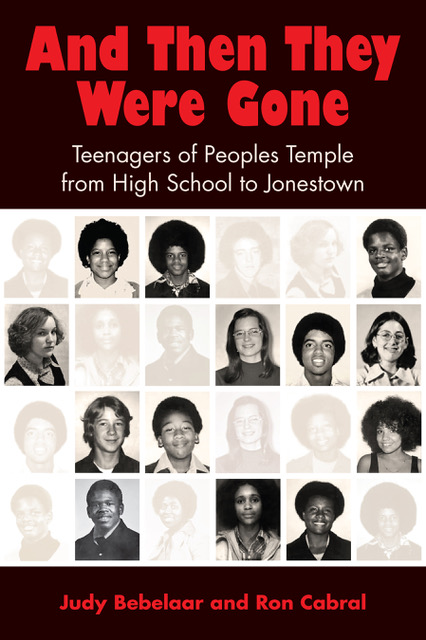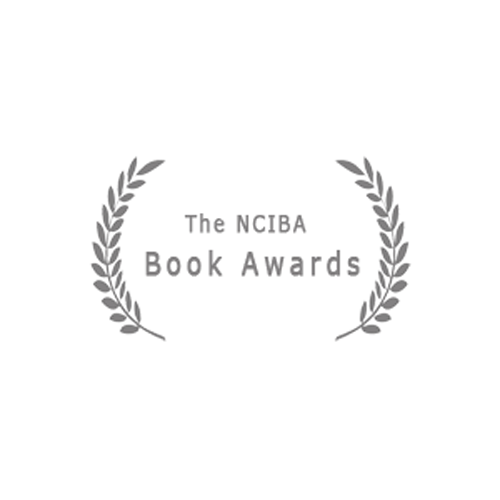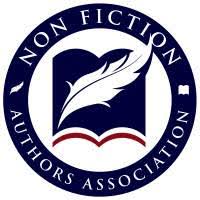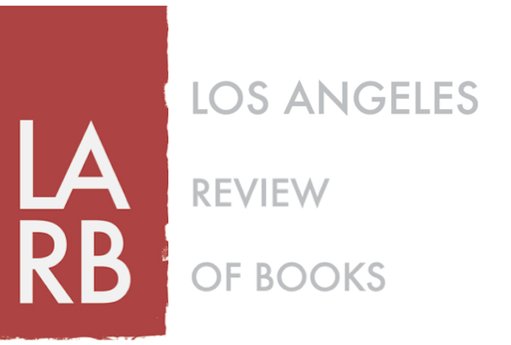And Then They Were Gone provides the social context for understanding Opportunity, Peoples Temple, and the Jonestown massacre as part of a complex decade of turbulent cultural change.
The murder-suicides of the Jonestown massacre on November 18, 1978, constituted the largest mass death of American civilians until September 11, 2001. Children under 18 represented One-third of the Jonestown deaths. Half of the victims were in their twenties.
From the preface of the Jonestown book:
We would like to think the teenagers we knew, some of those who died and the few who lived can help make Jonestown more than a barely remembered story of people who perished in a faraway jungle, a tale often reduced to the dismissive phrase coined from the tragedy: “To drink the Kool-Aid.”
We hope this story about our young students—their hopes, their poetry, their efforts to help make a better world—will bring some light to the dark story of Jonestown.
Published in April 2018, And Then They Were Gone is now available for purchase.
And Then They Were Gone: Teenagers of Peoples Temple from High School to Jonestown
by Judy Bebelaar and Ron Cabral
ISBN 978-0-9987096-8-0
$26.95
6×9, paperback, 320 pages
-
Order The Book via Amazon
-
Order the book from Sugartown Publishing.
- Review From LA Review Of Books
The Story of The People’s Temple Teenagers
Short description
In September 1976, Reverend Jim Jones chose San Francisco’s Opportunity II High, a public alternative school where Bebelaar and Cabral taught, as the one he wanted the Peoples Temple teenagers to attend.
And Then They Were Gone: Teenagers of Peoples Temple from High School to Jonestown introduces 28 of those Temple teenagers. Of those who attended the small school, the book focuses on the fifteen children Bebelaar and Cabral knew best. The story traces their journey from the beginning until their sudden departures to Jonestown in the spring and summer of 1977. Most never returned after the Jonestown massacre.
Detailed Description
And Then They Were Gone tells how two teenage populations met at Opportunity High. Despite rules forbidding fraternization with non-Temple students, they made important connections.
Co-authors Judy Bebelaar and Ron Cabral included student writing in the book. They wrote poetry in Bebelaar’s class and writings from Cabral’s journalism class.
The Temple students, many of them good athletes and good students, made school’s first baseball team possible.
The Cobras, coached by Cabral, included Jones’s adopted sons, Tim and Jimmy Jones, and others from the Church. Many of those youngsters survived because they were away at a basketball tournament in Guyana’s capital on November 18, 1978.
As Jim Jones’s only biological son, Stephen Jones spearheaded the Jonestown basketball team. He also served as Bebelaar’s counselee during the writing of this book. When Bebelaar reached out to him after she and Cabral told this story, Stephan helped them get the Jonestown part of the story right. He generously shared his own vivid writing about life as a teenager in Jonestown.
They used their strength and resilience towards clearing land, building cottages, tending crops, caring for children and serving as Jones’ personal protective service.
But the young people also found ways to be normal teenagers and to rebel against strict rules despite the hard labor required of them. They endured harsh punishments in a place that had become a prison camp. The book concludes with the last months and days in Guyana.
And Then They Were Gone provides the social context for understanding Opportunity, Peoples Temple, and Jonestown as part of a complex decade of turbulent cultural change.
The murder-suicides in Jonestown on November 18, 1978, constituted the largest mass death of American civilians until September 11, 2001. Children under 18 represented One-third of the Jonestown deaths. Half of the victims were in their twenties.

Judy Bebelaar: co-author of And Then They Were Gone

Ron Cabral: co-author of And Then They Were Gone
Written by former Opportunity High School teachers Judy Bebelaar and Ron Cabral, And Then They Were Gone tells the story of their students from People’s Temple to Jonestown. To find out more about the teachers and the book, follow us on Facebook.
Excerpt from Chapter 12:
Excerpt from Chapter 12, “Precious Acts of Treason,” a phrase from Deborah Layton’s book, Seductive Poison: A Survivor’s Story of Life and Death in Peoples Temple. Her words refer to the many ways people did rebel, in ways both large and small, in Jonestown. Edith Roller, who is mentioned below, was the only person allowed to keep a journal in Jonestown.
The Diversion of Music
Music provided another form of escape from drudgery and exhaustion, at least for a while. For many of the other people Stephan’s age, music and dancing, the preferred respite from the madness, and, as Roller’s journal reveals, there was still at least some fun at the evening rallies. Jones was learning how difficult it is to suppress youthful pluck and spunk.
There was no shortage of performers: Jonestown had the Temple band, several singers, and other musical and dance groups. Roller detailed the program for one particular evening—on the billing were the “stomping” Soul Steppers, a rhythm, marching, and dance group that performed regularly.
A woman named Shawanda Jackson danced to the “St. Louis Blues.” Diane Wilkinson sang “Summertime” and “Isn’t She Lovely,” and someone named Patsy Johnson even performed a “snake dance with an emerald green boa constrictor.”
(Edith Roller’s Journals can be found on The Jonestown Institute
website, Alternative Considerations of Jonestown and Peoples Temple https://jonestown.sdsu.edu/)
Read Chapter 12
And Then They Were Gone, by Judy Bebelaar & Ron CabralDownload Chapter 12
Awards & Press
1. Ron and Judy named San Francisco Library Laureates, 2019
2. Nominated (1 of 5 nominations, General Nonfiction) for the Northern California Book Awards, 2019
3. Northern California Publishers and Authors first prize General Non-fiction, 2019
4. Non Fiction Authors Association silver award, United States, Sociology, 2019
5. Royal Dragonfly Book Award first place Historical Nonfiction, 2019
6. Royal Dragonfly Book Award first place, Other Nonfiction, 2019
7. Book Excellence Awards (A Celebration of Global Literary Excellence) winner, Young Adult Nonfiction (chosen from “among hundreds”)
8. Chanticleer International Book Awards semifinalist, Nelly Bly Award for Narrative Nonfiction
9. Award-Winning Finalists in the History: United States category of the 2020 International Book Awards
10. First prize in the Nelly Bly Book Awards September 2020






